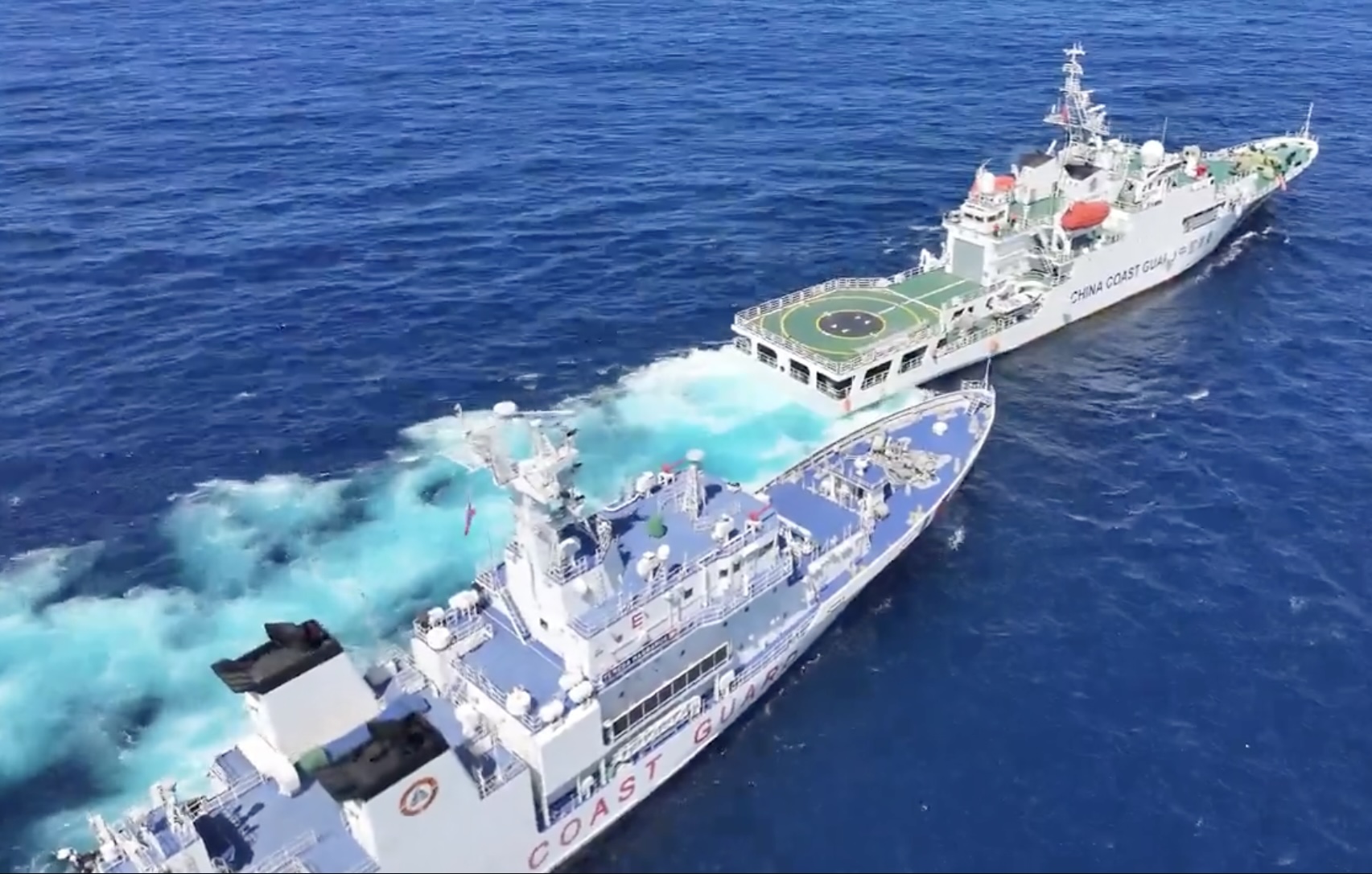PCG, BFAR begin rotational deployment of vessels in Bajo de Masinloc

Starting this February, civilian vessels of the Philippine Coast Guard (PCG) and Bureau of Fisheries and Aquatic Resources (BFAR) will now be regularly seen patrolling Bajo de Masinloc (Panatag or Scarborough Shoal) in Zambales to ensure that Filipino fishermen will be able to catch more fish despite the presence of Chinese vessels.
National Task Force for West Philippine Sea (NTF-WPS) Chairman and National Security Adviser Eduardo Año said this "decisive action" was undertaken by the national government to protect the rights and safety of Filipino fishermen in Bajo de Masinloc in line with the "Bagong Pilipinas" vision to achieve food security as a pivotal element in national development.
"The national government has directed the Philippine Coast Guard (PCG) and Bureau of Fisheries and Aquatic Resources (BFAR) to deploy their vessels for rotational deployment in BDM starting this month," Año said on Friday, Feb. 16.
This explained the nine-day deployment of PCG multi-role response vessel BRP Teresa Magbanua (MRRV-9701) in Bajo de Masinloc from Feb. 1 to 9, and the patrol operation of BFAR vessel BRP Datu Tamblot (MMOV-3005) since Feb. 14.
"These efforts aim to ensure the safety and security of our Filipino fishermen in their traditional fishing grounds," Año added.
The recent presence of Philippine ships in Bajo de Masinloc was, as expected, marred by controversy when the China Coast Guard (CCG) issued radio communication to challenge them.
CCG spokesperson Gan Yu claimed that they drove away a PCG vessel that "illegally trespassed" into the waters adjacent to Huangyan Island, the term they call Bajo de Masinloc, earlier this month.
The PCG, in response, released a video of a near-collision encounter between BRP Teresa Magbanua and a CCG vessel during one of its patrol operations in Bajo de Masinloc.
Año dismissed Gan's remarks as he reaffirmed the country's sovereign rights and jurisdiction over Bajo de Masinloc and its surrounding waters within the Philippines' 200-nautical mile exclusive economic zone (EEZ).
He noted that these rights are recognized under international law including the United Nations Convention on the Law of the Sea (UNCLOS) and the 2016 Arbitral Award.
Bajo de Masinloc is part of the municipality of Masinloc, Zambales and is located 124 nautical miles west of Zambales within the country's EEZ and Philippine Continental Shelf.
China seized Bajo de Masinloc in 2012 after a standoff between Philippine and Chinese vessels. Now, the ring-shaped coral reef which has several rocks encircling a lagoon is being guarded by Chinese vessels, which frequently drive away Filipino fishermen despite the area being a traditional fishing ground for them.
In 2016, a landmark ruling by the Permanent Court of Arbitration rejected China's claims in almost the entire South China Sea and favored the Philippines claims over what is now known as the West Philippine Sea. China did not honor the international ruling as it continues to maintain presence over the area.
Just last Feb. 13, a total of 14 Chinese coast guard and maritime militia vessels were monitored in different features occupied by the Philippines in the West Philippine Sea.
"Despite these challenges, the PCG and BFAR vessels will maintain professionalism in dealing with any unlawful and provocative behavior exhibited by China Coast Guard and the Chinese Maritime Militia vessels," Año said, noting that Chinese vessels' dangerous and blocking maneuvers are in disregard of the 1972 Convention on the International Regulations for Preventing Collisions at Sea (COLREGS).
He further emphasized that the activities of the Filipino fishermen and the PCG and BFAR vessels in Bajo de Masinloc are "fully compliant with national laws and consistent with the Philippines' position on the West Philippine Sea."
"Any attempts by state actors to intimidate or drive away our fishermen are clear violations of international law and disregard the decision of the Arbitral Award," he said.
Further, Año added that the PCG and BFAR were also directed to continue distributing food packs, groceries, and fuel to fishermen frequenting Bajo de Masinloc so they could sustain their fishing activities.
"The National Task Force on the West Philippine Sea (NTFWPS) reassures the Filipino people that our member agencies are fully dedicated to upholding our commitment to the President and the nation. Through a comprehensive whole-of-government approach, we stand unwavering in our mission to protect our sovereignty and safeguard our national interests in the West Philippine Sea," he concluded.